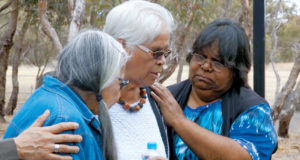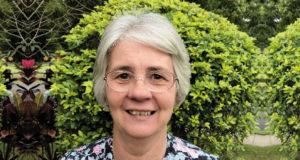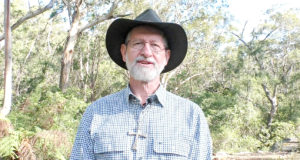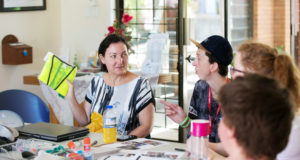If you’ve never felt unwelcome in a worshipping community it might be hard to understand how many people experience church. Journey explores how to make sure your church is truly inclusive.
 Indigenous Australians
Indigenous Australians
The Uniting Church sees reconciliation with Indigenous people as essential to the life and health of the church and Australian society. Including an acknowledgement of country before a service or meeting is respectful. Your congregation can make a deeper connection through activities like About FACE or through working with the Uniting Aboriginal and Islander Christian Congress.
 People with disabilities
People with disabilities
There are all kinds of visible and invisible barriers that can sometimes literally stop someone from getting to church. Does your church have a wheelchair ramp to the sanctuary? Does everyone speak into the microphone clearly? Aim to make every aspect of your church disability inclusive.
 People with mental health issues
People with mental health issues
Be a safe space where mental health issues can be discussed openly, without stigma. Don’t suggest that their diagnosis relates to the strength (or otherwise) of their faith. Remember: issues relating to mental health are just one part of the person; don’t define people by this alone.
 People from other cultures and languages
People from other cultures and languages
Cultural diversity is a gift, but avoid tokenism. Instead, integrate the diverse cultural backgrounds into worship by choosing leaders of other cultures and language groups. Free them up to develop themes in sermons and prayers that draw widely from different cultural sources and concerns. Over time, genuine openness to cultural diversity will transform the way you are church.
 LGBTI people and their families
LGBTI people and their families
Are lesbian, gay, bisexual, transgender and intersex people able to contribute to your community of faith? Avoid setting up barriers to participation by learning and using the kind of language LGBTI people use to describe themselves. Also, “Don’t ask, don’t tell” doesn’t cut it; instead, allow people to know you and to be known without judgement.
 Single people
Single people
Do single people feel welcome at your “family service”? Church is often an awkward place for singles. “Is there something wrong? Why haven’t you met Mr/Ms Right yet?” Even if you think they’re a catch, resist the urge to set them up on a blind date with your grandchild—God might have other plans. Be mindful, too, of those who are widowed or divorced.
 JourneyOnline
JourneyOnline








The Seventh Way to be Inclusive Church: Refugees